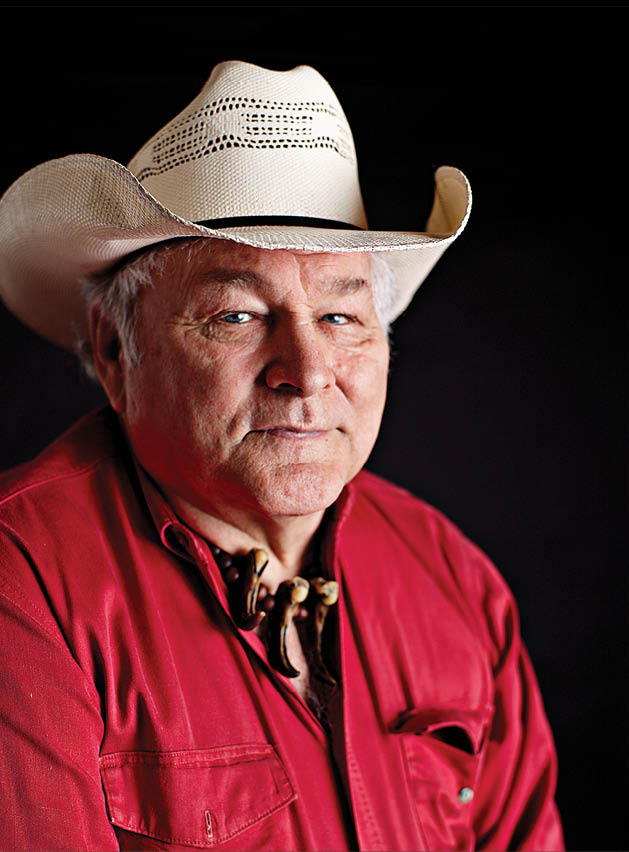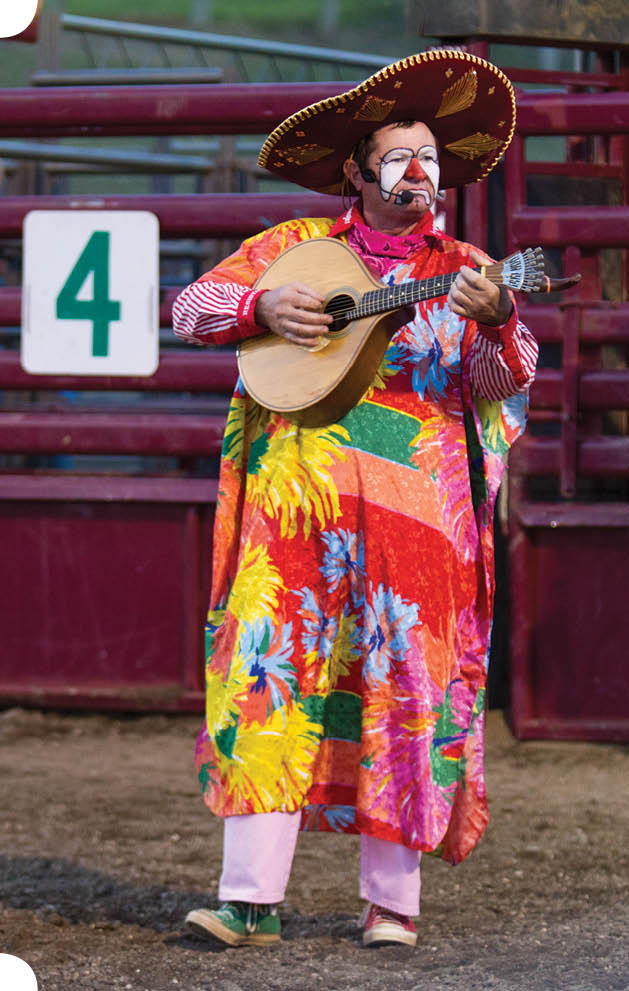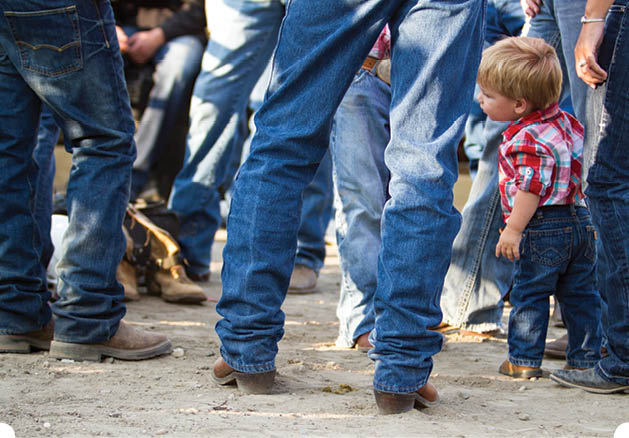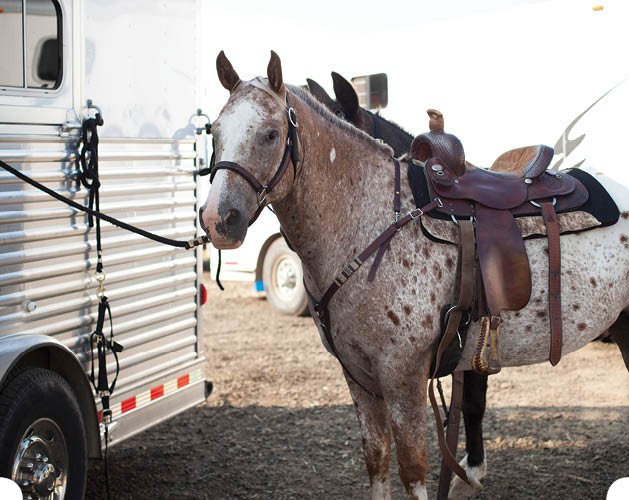For four days each July, the sun goes down over Corcoran Lions Park and the bright spotlights come up around a dirt arena. The smells of hot dogs, burgers and fresh-popped kettle corn mingle with warm earth, horses and hay. Fans stream down the hill from the east and fill the old wooden bleachers in anticipation of a cherished—and valuable—tradition: the Hamel Rodeo.
The Hamel Rodeo celebrates 34 years of giving back this July. The long-running annual event benefits five Hamel organizations: the Hamel Volunteer Fire Department, the John Pohlker American Legion Post, the Heinzen-Ditter VFW Post, the Hamel Athletic Club and the Hamel Lions Club; more than $1.25 million has been contributed since the first event in 1981.
“There were two goals for the Hamel Rodeo,” co-founder Shorty Dorweiler says. “No. 1 is to promote and showcase the area. Hamel is only a post code; it’s not even on most maps.
“And No. 2: To generate funds for those organizations to put back to this community. Every dollar goes back to the community,” Dorweiler adds. “There’s no paid staff whatsoever. It really does bring the community together, working side by side for a common cause.”
In addition, he says, the Hamel Rodeo is much more intimate than the bigger touring rodeos.
“It’s an up-close-and-personal atmosphere. There’s no comparison between an indoor and an outdoor-type event. There’s much more competition at an outdoor event,” he says. “You’ve got seats where you can almost reach out and touch the animals.”
Corcoran Lions Park has hosted the Hamel Rodeo for years, and the wooden bleachers and grassy hills have hosted thousands of fans through the decades. During the event, competitors, spectators and friends will descend on the park for four days of competition, entertainment and a good cause.
“I’ve learned that there are a lot of people out there that are willing to volunteer and put in time for good causes, but they’ve just never had the opportunity—or they’ve been afraid that they weren’t going to be successful,” Dorweiler says. “It’s great to see people like that find a way to help.”

THE DORWEILERS
Shorty Dorweiler was born in Hamel and has lived in the town his entire life. He’s the CEO of Farmers State Bank of Hamel, which his grandfather started in 1919. Though he’s the owner of a community anchor and has been a well-known figure in town since he was a child, he somehow found time to foster a successful career as a bull rider on the side.
“It was just something I wanted to do,” Dorweiler, 67, says. “I had a brother who rodeoed just a little bit, but it looked like a big challenge to me, so I decided I was going to be a rodeo cowboy.
“I actually learned while on the rodeo trail. I learned as I was going along. I never went to rodeo school, like they have now, or anything like that,” he says. “The learning curve was more the bumps and bruises you got, because no matter how good you are or bad you are, you do take a lot of poundings.”
Dorweiler traveled across the United States and Canada “for many, many years,” he says. “I was still riding bulls when I was over 40 years old, which is very late in someone’s career.” Dorweiler cuts a distinctive figure, one you wouldn’t expect for a banker: He wears a bear’s-tooth necklace every day and still has the powerful build of a man who came into regular contact with massive, angry bulls. Along with brother Julie, Dorweiler has been wrangling the Hamel Rodeo as organizer and arena director since its first year, when it was held in the parking lot of the Medina Ballroom.
“Shorty has a love for the sport, and it really shines through,” says Ruth Nicolaus, the Hamel Rodeo’s publicist and a lifelong rodeo fan. “They’re honest and they’re trustworthy, so people love to deal with Shorty and Julie.”
Shorty’s son Rowdy, 38, is the treasurer of the Hamel Rodeo committee and says he grew up in the rodeo community. “My father competed for many years, and I competed in high school and professional rodeo as a bull rider,” he says. “It’s pretty much a family tradition.”
Rowdy has been a part of the Hamel Rodeo every year since he was 6 years old. He assists his father with arena operations, and though he’s seen Shorty’s leadership in action, he’s quick to stress the community spirit of the rodeo. “There’s an awful lot of work that goes into making this event successful. It’s not one person or group of people,” he says.
Rowdy says his father started a successful event and kept it going for decades. “If he was to pat himself on the back for something, it’s being able to rally community support. It’s not a one-person thing, but garnering the support of those community organizations and keeping them for 33 years—it says a lot.”

GIZMO
While there might be dozens or hundreds of cowboys and cowgirls competing over the course of a rodeo, there are only a few people responsible for making sure the competitors stay safe in the ring. There are two pick-up men, who ride around the arena roping loose horses and bulls and snatching—literally picking up—dismounted cowboys. There are two bullfighters whose job it is to distract and avoid bulls while cowboys get out from underneath them during bull-riding competitions.
And then there’s the clown. A rodeo clown is many things: a bullfighter, a comedian, a source of entertainment. With quick feet and a nimble wit, the rodeo clown simultaneously entertains the crowd and helps ensure the safety of the people in harm’s way. “You couldn’t have a rodeo without a clown,” says Gizmo McCracken of Wheaton, Mo., who’s been entertaining audiences as a rodeo clown for 37 years and counting. “That’d be like having a spin-the-bottle party without a bottle!”
On the road for somewhere between 250 and 300 days a year, McCracken says he never gets tired of shows, but the road does wear on a person.
“Being away from our home church, family and friends is hard sometimes,” he says. “But if you’re cut out for this life, you wouldn’t have it any other way.”
McCracken got his start in rodeo as a bullfighter, but says his instincts for comedy stretched back further than that: “I was the little kid they kept sending home from school with the notes pinned to his shirt, saying, ‘Don’t let him come back ’til his problems are corrected!’” he says. “If they had had that ADD medicine, I wouldn’t have had a career today.”
McCracken says he’s impressed by the amount of work the organizing committee of the Hamel Rodeo puts into the event.
“There’s a great committee here,” he says. “There’s a lot of involvement—it takes a lot of people to put this together. Everybody has their part in it. Everybody’s taking care of their business, and it kind of lightens everybody’s load.
“It’s not a money-making thing for the people that are putting it on,” he adds. “They just enjoy it and enjoy what they’re doing and want to give back to their community. And this is a great way to raise some money to help some folks out.”

THE COMMUNITY
Eddie Leuthner started playing baseball in the Hamel Athletic Club when he was 4 years old. He’s now 46 and is the president of the organization. Nine years ago, his young son started playing club baseball, which Leuthner says is historic. “Hamel baseball has been around since 1926. It has a deep, rich tradition within the Minnesota baseball community,” he says. “We just joined the Little League organization to bring Little League to the Hamel-Plymouth-Wayzata community. We have more than 500 kids, from ages 13 down to 4, playing in Hamel each summer.”
Keeping a large community organization like the Hamel Athletic Club functioning smoothly is one of the beneficial effects of the Hamel Rodeo. “After all the expenses are paid and everything’s done [with the Rodeo], the five community sponsors evenly spread the profits,” Leuthner says. “For us, that money goes toward the kids playing baseball in new uniforms and new equipment. Last year, we were able to add a sprinkler system and some scoreboards.
“The rodeo is our No. 1 financial contributor to our program year after year. With that rodeo money, we’ve been able to put that back into the kids and the facilities to enhance our program,” he says.
Leuthner brings his family to the rodeo every year; the kids enjoy it, the parents enjoy it—it’s a great event. Last year, Hamel Athletic Club had the honor of being the grand marshal of the rodeo parade. “We had more than 50 kids throwing candy and walking the parade wearing their Hamel gear,” Leuthner says.
Rowdy Dorweiler says around 17,000 fans have come to the Hamel Rodeo each year since 2007. He says that though the rodeo could focus on turning a larger profit, its mission is to provide a good show for the community. “The committee made the decision in 2007 or 2008 to hold the prices solid for spectators and advertisers. We’ve focused more on the cost controls than on expanding it,” Dorweiler says, adding that patrons will only notice a modest increase for 2014.
“Each year we hope to grow it a little bit, but we also understand that people’s entertainment dollars are limited, and that we’re competing against a lot of different choices,” he says.
The 2013 Hamel Rodeo distributed about $45,000 to the five community organizations, Dorweiler says. In addition, the Thursday performance for the past several years has supported a Professional Rodeo Cowboys Association program called Tough Enough to Wear Pink that supports breast cancer awareness and research. “In the last several years, the Hamel Rodeo has been able to contribute more than $40,000 to that organization,” he says.
As a member of the Hamel Volunteer Fire Department, Dorweiler also sees the effects of the rodeo money on the Hamel community. “Every nickel that comes in [through the rodeo] helps reduce the burden on the taxpayers,” he says. “Each organization can do with it what they see fit. They’re all nonprofits, and it’s up to them to use the money how they feel it’s best used. The money definitely stays local.”
Judging by the number of excited faces, young fans and out-of-state license plates outside the rodeo grounds, the Hamel Rodeo is doing its job. “The original purpose of the rodeo was to not only raise money for local organizations but also put Hamel back on the map,” Dorweiler says. “There aren’t too many people who don’t know where Hamel is any more, and the rodeo is one of the reasons why.”
The 2014 Hamel Rodeo takes place July 10–14 at Corcoran Lions Park. hamelrodeo.org










